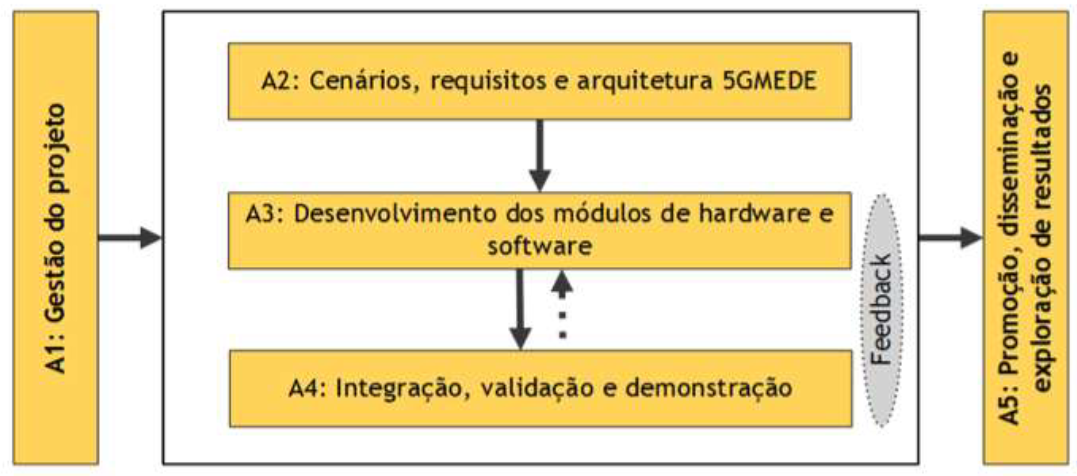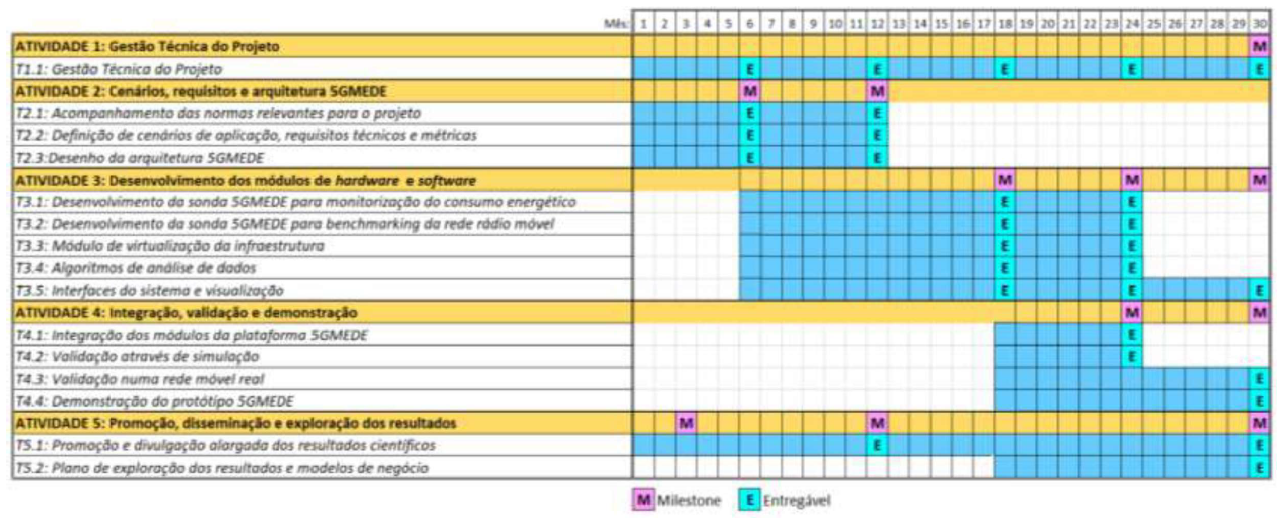
5GMEDE - 5G Mobile Edge Computing with Enriched Radio Network Information Services
|
5GMEDE Key Data
5GMEDE Overview
The 5GMEDE (5G Mobile Edge Computing with Enriched Radio Network Information Services) project corresponds to the national component of a larger EUREKA project, approved by the CELTIC PLUS initiative (Cooperation for an European sustained Leadership in Telecommunications) - the CELTIC 5GMEDE – which is focused in validating the Mobile Edge Computing (MEC) architecture to support low latency and high throughput 5G services (see letter of recommendation from the EUREKA-CELTIC PLUS 5GMEDE project’s coordinator and from CELTIC OFFICE). The Portuguese contribution is related to Enriched Radio Network Information Services, more specifically in the research and development of innovative solutions to monitor and reduce the energy consumption at the mobile radio network base stations, including the measurement of network key performance indicators to estimate how the end-user Quality of Experience (QoE) is impacted by the new 5G functionalities (such as MEC) and different mobile radio network configurations. The 5GMEDE project will be built on top of an existing network management platform, brought to the project by CELFINET, which is to be significantly improved to increase its market value in the context of the upcoming 5G system (see recommendation letter from VODAFONE Portugal).
Foreseen products
- Major outcome of 5GMEDE is improvement of advanced platform (hardware and software) for optimization on configuration and operation of last generation mobile network for Energy Consumption optimization and good Quality of Experience for the end user.
Target Market
- Business market of Telecommunication Operators;
- Consulting Companies that operates on planning, configuration and optimization of radio networks.

WP1 – Project Management
Main objective of this WP is to lead and coordinate the project to support the technical work with a fine project implementation and make processes easier for the technical team. Financial, administrative and operational management will be carried out in this WP. There are two layers divided as tasks in WP1.
WP2 – Requirements Analysis and Architecture Design
The objective of WP2 is to analyze the user and system specific requirements and design a baseline architecture covering the identified requirements. The outcomes of this WP will serve as the basis for WP3, WP4 and WP5. It is important to note that, requirements and the system architecture determined in this WP may be updated and modified according to the research results produced within the project.
WP3 – Development of Software and Hardware modules
This WP aims to develop the hardware and software modules of the 5GMEDE platform, more specifically:
- Development of the energy consumption monitoring system, based on non-intrusive probes and installed on the various components of the base stations;
- Development of the radio network benchmarking probes for analysis of QoE;
- Development of the software blocks and interfaces required to functional architecture of the 5GMEDE platform, including network virtualization.
WP4 – Integration, Validation and Demonstration
In this WP, the objectives are:
- Integration of modules developed by 5GMEDE on the network advanced platform;
- Validation of the functionalities of the proposed system through tests in simulation environment;
- Build a prototype of the 5GMEDE platform through the integration of various components developed in WP3, according to the architecture defined in WP2;
- Plan, specify and perform validation tests, tests and development of the prototype;
- Use the prototype as a complete demonstrator to promote the results of the project.
WP5 – Dissemination and exploitation of the results
The objectives of this work package are to:
- Efficiently disseminate project achievements
- Effectively plan the exploitation strategy of project results aligned with the market trends, both in terms of overall (joined) and individual partner’s exploitation plans
- Ensuring standard compatibility and promoting the project achievements into the international standardization bodies, especially ETSI MEC ISG

